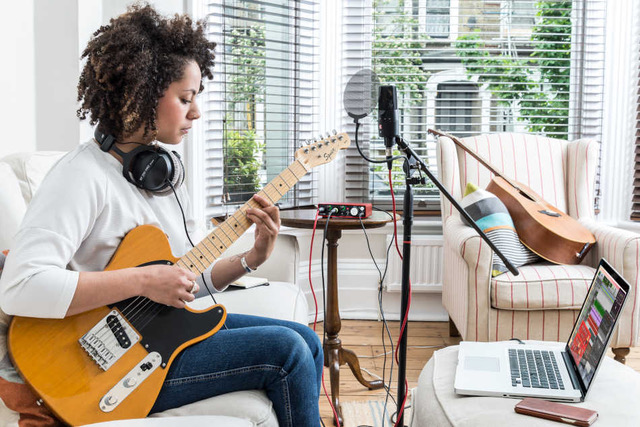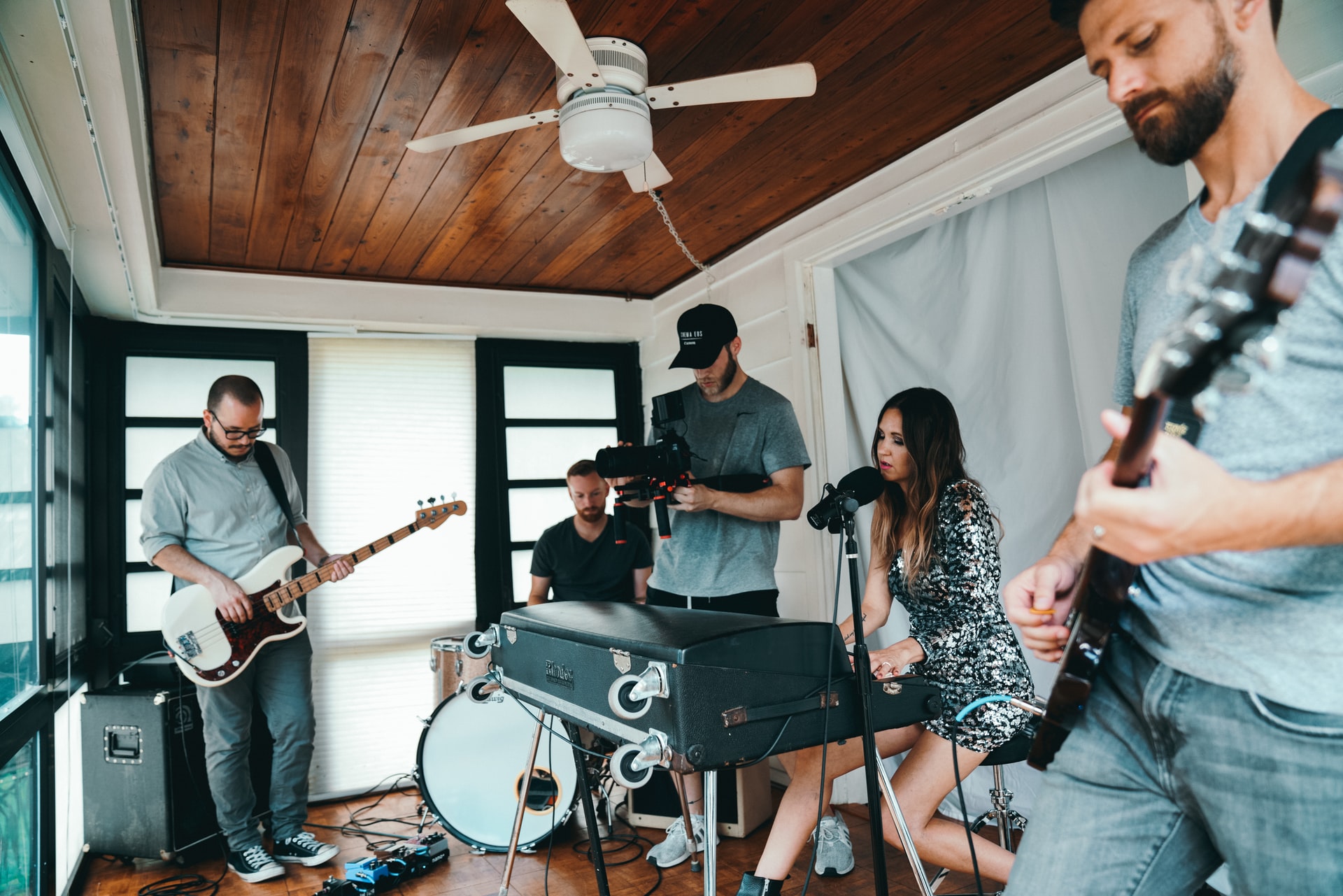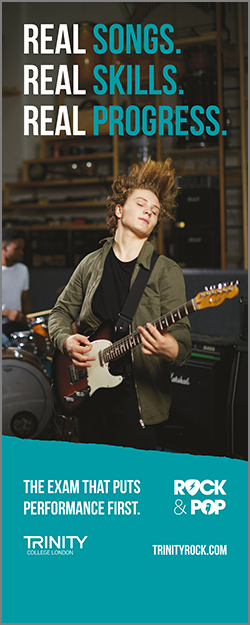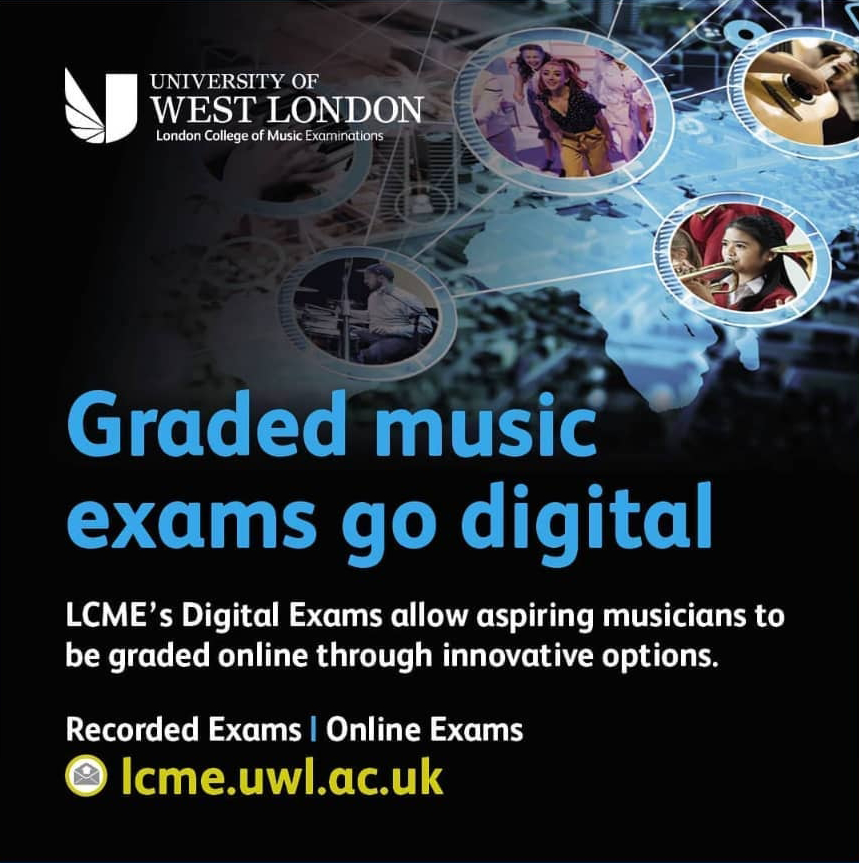Grades & Exams
Will Exams Make Me A Better Musician?
You may be able to play a load of licks, a few cool songs, sweep arpeggios at phenomenal speed and tap like a rock god, but still not truly understanding what you are doing or have gaps in your playing that you need to improve on.
Most guitarists learn a few similar things, from pentatonic scales and some comfortable chords but lack real fretboard knowledge. This can lead to a lack of inspiration and a limit to your skillset as a musician. Sitting exams will push you to address your weaknesses and open your mind to new concepts. In turn, this will enhance your creativity and allow you to explore new areas of music.

We All Need A Goal
Everyone needs a goal, whether work, health, fitness or education related, just to mention a few. Your guitar playing should always have a goal, some short-term, and some long-term, but always musical.
Having a goal like entering a guitar exam grade, will make you work harder, increase motivation, and develop your organisation skills by following a practise routine.

Short Term Goals:
- Memorising three new chords
- Memorise one scale
- Start to introduce yourself to reading music
- Learn one song
- Starting your first exam grade
Long Term Goals:
- Feeling comfortable with barre chords
- Understanding key signatures
- Write a song
- Join a band
- Understand how to use pedals, amps & guitar tones

Measure Your Progress And Manage Pressure
The good thing about the guitar grades, there is a structured scheme of work. You can see your progress just by looking back a few months. You can go from deciding to enter grade 1 exam to now passing and receiving a certificate, that validates all your hard work.
This now leads you on to grade 2, which is progress in knowledge and playing. It’s like playing your first few chords will lead to you playing your first song which, in-turn will help you reach your ambitions of performing live or joining a band. There is underlining pressure from doing a guitar grade similar to performing live.
Experiencing this will help you become accustomed to it. Remember that feeling nervous, is the way your body prepares itself to be ready. Enjoy the moment, control your excitement and you will do well.
Guitar Exam Type And Boards
All guitar exams range from grades 1 to 8 with step and preliminary grades being offered for complete beginners and younger students. Guitar grades are fully accredited by OFQUAL and UCAS points are available for grades 6, 7 and 8. The different type of exams available range from: Electric, Acoustic, Classical, Rock and Jazz guitar.
There are a few different exam boards, all that do things in slightly different ways. Trinity Rock and Pop and Rock school – RSL exams are more performance based dealing song repertoire, which suits some students.
Students who are wanting to work on general musicianship as well as performance, would be more suited to ABRSM (validated by the Associated Board of the Royal Schools of Music), Trinity (validated by Trinity College London) and London College of Music Examinations – LCME (validated by the university of West London). I believe these boards equip students with concepts for becoming a more rounded guitarist.


Face To Face Or Online Video Exams
Online video exams will follow the same format as a traditional face-to-face exam, but using a live, secure, online platform.
The benefits to this can be to take your exam from the comfort of being at home, no waiting times, reduced stress and the travel time required of attending a face to face exam. Some students prefer face to face exams and like being in the same room as an Examiner (The Old School Way) of taking an exam.

Recorded Exams Flexibility
These exams provide further flexibility whereby candidates record their performance at a time and place that suits them and uploads a video of their performance to a secure platform.
This removes the need to attend an exam venue to take your guitar grade at a specific time and place.
This uses the same standards and criteria as face to face and online video regulated exam assessments, but offering flexibility allowed by the entry process.
